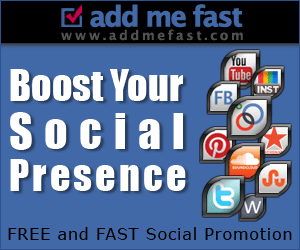The Affiliate Link Hiding Method
The Affiliate Link Hiding Method
This method involves just a few simple lines of php code.
12345678910 | <?php$sTarget ="http://763a58tcxkzh3fnfj8hjvxfj3v.hop.clickbank.net/?tid=FGET";$handle = fopen($sTarget, "r");while (!feof($handle))echo fgets($handle, 4096);fclose ($handle);echo "<img src='" . $sTarget . "' width='1' height='1'alt=' ' />";?> |
Replace http://763a58tcxkzh3fnfj8hjvxfj3v.hop.clickbank.net/?tid=FGET
with whatever your affiliate link is. Paste this code into a plain text file and
save as whatever.php. Upload it to your web server. This becomes the url of
your affiliate link.
How this Affiliate Link Hiding Code Works
What this php code does is causes the html code url of the affiliate link to be
downloaded and displayed in the users browser. If you view the source code
of the page you will see it is entirely, 100%, the source code of the affiliate
website. At the very bottom of the page the image code is appended to the page
to ensure the affiliate cookie is dropped on the target computer.
This is one method of hiding affiliate links I have never seen online before and
after extensive testing it seems to be the very best way to hide affiliate links.
Instead of turning an affiliate link into something like this:
Why is True Link Cloaking Important?
Because of 3 Simple Facts About Affiliate Links:
Affiliate links are usually long and ugly and contain long strings of numbers and characters. If you're an online
marketer, that wouldn't bother you the least, but for many people, a link that looks like this:
http://www.hop.affilnetw.com/?=ku2b4B30ijbasT47720sb534Nbq6
simply screams "YOU CAN'T TRUST THIS!"
They'll hover their mouse over your "product name" link and just before they click, see that long, ugly link indicated
in their browser. The link looks nothing like the product name they're looking for and they've heard bad things about
viruses and malicious sites, so they decide not to click.
Your commissions? So near and yet so far...
COMMISSION THEFT! Yes, there is such a thing as commission theft (especially prevalent on ClickBank).
That's when someone comes to your site, reads about a product they're interested in and then, just before they
decide to go for it, recognize that your link is a ClickBank affiliate link (remember: a LOT of people use ClickBank
and know what the links look like).
So, they decide to give themselves a little bonus by going through their own link instead of yours and all
your hard work, once again, doesn't pay off.
Quite frankly, commission theft is something that is often played up unrealistically. It's not that big of a problem and if
someone truly wants to buy stuff through their own link, you can't really stop them.
Still, if you could quickly and easily eliminate a small percentage of commission loss, caused by theft,
why wouldn't you?
Here's the biggie... and it's not pleasant. There's one little psychological quirk, one little "glitch" in the human mind,
that's costing you far more commissions and loosing you more clicks than either of the above...
I call it "affiliate link reluctance". When someone sees an affiliate link and they recognize it as such,
there's a good chance they won't click.
Why?
Distrust: "If this guy's getting paid for every sale, that must mean he's not honest."
and worse...
Envy: "I don't want some random person to make a commission off of my back!"
Most people would NEVER admit to thinking like that. But it's a fact that they do and you know it.
So that means we need a link-cloaking tool right?
We need to make sure that visitors don't see the blatant, long, ugly affiliate links on our sites and that solves
all these problems!
I'm afraid link-cloakers aren't the answer.
At least not the ones you've seen so far.
Why?
Simple. It's abundantly clear that the type of link that link cloakers produce:
http://www.yoursite.com/productname
or
http://www.yoursite.com/go/productname
or
http://www.yoursite.com/recommends/productname
are not the same as "real", direct links. The only kind of link that's truly cloaked and truly unaffected by the
"affiliate reluctance" effect is one that looks like this:
http://www.productname.com/
It creates affiliate links that look exactly like raw, pure, honest-to-goodness direct links to the products.
But it does it in a way that makes sure you're cookie is set EVERY TIME, and ALWAYS get the commissions
you deserve!

Comments
Post a Comment